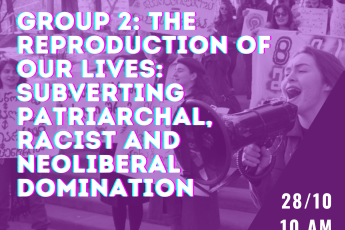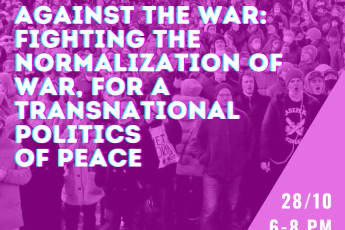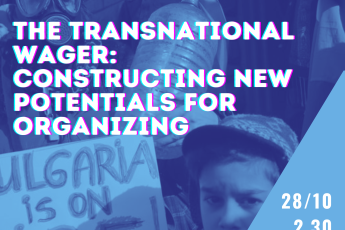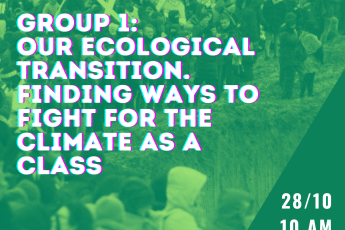FRANKFURT TRANSNATIONAL MEETING
14:00 – 16:00 INQUIRIES ON THE PRESENT PART II – WORKSHOPS 4+5
Today, migrants’ struggles against everyday institutional racism, patriarchal violence, and capitalist exploitation have also to face the dire consequences of the war in Ukraine. While borders’ control and police violence are intensifying, migrants are finding new strategies and creating new infrastructures in order to get their freedom. New networks of solidarity are created along the Balkan route, which in turn is getting more and more militarized, as the EU plans to expand the control of its borders Eastward and Southward. In general, the war has become an excuse for the European governments to tighten their migration policies, for example by making new agreements with brutally authoritarian regimes like Libya, in order to have gas supply and, at the same time, to intensify efforts to prevent Mediterranean crossings. Especially migrant women are paying the cost of the crisis, as they’re employed in the most precarious and badly paid sectors. Also because of that, many Ukrainian refugees (mostly women) are increasingly trying to return to their country, as the initial “solidarity” of the EU government has faded away. Meanwhile, the nationalistic propaganda, fueled both by ‘liberal’ and ‘illiberal’ governments, is increasing the racist hatred against migrants, even against those Russian migrants who are refusing conscription and fleeing from their country’s politics. Nonetheless, migrants keep on organizing and fighting against all of that, along the borders as much as in the workplaces, inside the reception centers as much as in the streets. Many anti-racist collectives are building infrastructures that help and support migrants’ freedom of movement in safety, many others are fighting for better conditions in reception centers. Others fight for the regularization of migrants and the obtaining of residence permits that free them from the blackmail of exploitation. How can we connect these struggles and find common claims? What strategies of struggle can we adopt?
How do we facilitate the communication on a transnational level in order to build a collective force? How has the war changed the framework of our struggles, and how can our anti-racist fight intersect the struggle against the war?
Location: K4





